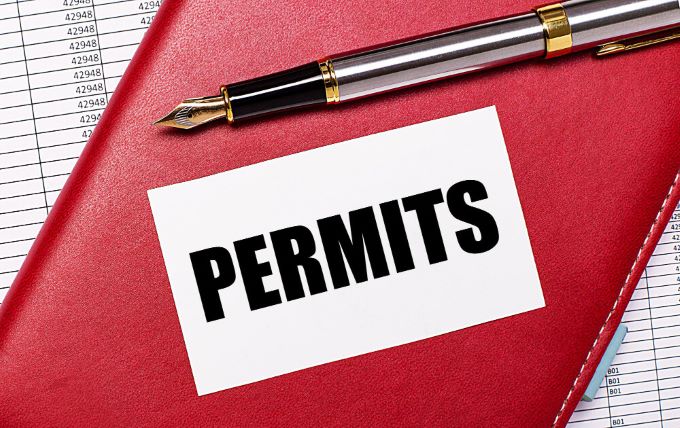Are you looking to start a retail business but not sure what the difference is between a business license and a seller’s permit? This article will explore the differences between these two important documents.
So if you are new to the retail business and wondering what are the differences between a business license and a seller’s permit, this article is for you!
Table Of Content
What Is a Business License?
Types of Business Licenses
What Is a Seller’s Permit?
What Types of Businesses Need Seller’s Permits?
Business License vs. Seller’s Permit: What’s the difference?
FAQ
What Is a Business License?
A business license is a document issued by the government to authorize a business to operate in a particular jurisdiction. In simple words, a business license is written permission granted by the government allowing you to do business in a particular area.
Business licenses are obtained from various state and local agencies, including your city or county clerk’s office. The requirements for obtaining a business license vary depending on the type of business you plan to operate.
Generally, businesses must meet certain requirements such as registering with their state. For example, if you want to open a retail store, you will need to register with the state and obtain a business license.
You have to pay a certain fee to obtain a business license, so make sure you budget for that.
Some business owners choose to operate without a local license, especially if they’re running a home business. If you get caught operating unlicensed, you’ll have to pay your back license fees, which might include a penalty.
So it’s better to follow your state rules and obtain a business license before you start operating your business.

Types of Business Licenses
Business licenses are very important for companies. If a company does not have the right license, it might get fined, have to close the business, or in worst case scenarios, even go to jail. It is very important to know which licenses you need and how to get them.
There are mainly six common types of business licenses, and knowing how they work will help you decide which ones your business might need. Talk to someone who knows about this stuff if you have questions about licenses for your business.
1. State business license
The most common type of license, this one is required by every business that operates in a state. The state’s Department of Revenue will issue this type of license if you meet certain requirements.
You might also have to pay an annual fee and submit your taxpayer information as well as your business’s financial statements. Let’s say you are running a wholesale business, and since it operates in one state, you will need a state wholesale license.
2. Federal business license
This type of license is required for businesses that do work on a national level and/or sell products or services across state lines. This could include companies that manufacture products, transport goods or provide certain services like insurance or banking.
The fees for this type of license vary depending on the size and the type of business you have.
3. City/County business license
This is required if you plan to do business in a certain city or county. This type of license is issued by the local government and it usually comes with an annual fee that has to be paid.
It is one of the simplest licenses to obtain, so if your business operates in a certain city or county, make sure you apply for this license.

Streamline your business with Octopos– A Complete POS System with Big Boys Tools without the Big Price
It is a lot more than a point of sale. Octopos is easy and intuitive for you and your staff to use. Yet you get all these sophisticated tools to manage inventory, track and engage customers, get meaningful insights into your business, and much more.
4. Professional business license
Many states require licenses and certifications to work in certain fields – these licenses show that you or your employees are qualified for the job. Here are some of the industries that require this type of license:
- Healthcare professionals (doctors, nurses, and dentists)
- Financial advisors
- Lawyers
- Construction
5. Sales tax license
This is required for businesses that sell physical products and collect sales tax from customers. You need to register with your state’s Department of Revenue to get this license.
You need to check if you need a sales tax certificate from your state’s tax authority. A business license from the state only lasts for one year, so you need to renew it every year.
This license is a very important one if you are planning to open a retail store.
6. Home Based business license
If you are a freelancer or you run a home-based business, you might need to get a license from your local government. This one is very easy to acquire as it doesn’t require too much paperwork or fees.
These licenses are to inform that your business owns or operates from home and complies with local regulations.
These are just some of the most common business licenses that you need to acquire. Make sure you know what type of business license you need and apply for it before you start operating your business legally.

What Is a Seller’s Permit?
A seller’s permit is a special type of business license that is required by any business that sells goods or services to customers. This permit allows sellers to make certain purchases tax-free and collect taxes from customers when they buy something.
Obtaining a permit is easy – simply visit the website of your local government agency that regulates businesses, and you’ll find the necessary form in no time.
The information you will need to fill out such an application usually includes the name and address of your business, your Social Security number (SSN) or employer identification number (EIN), an estimate of monthly sales, and the names of suppliers (if you have any).
Whether you are a retailer or a reseller, obtaining a seller’s permit is essential for staying on the right side of the law.
If you are selling things to people, whether you are selling them a lot of things at once or just one at a time, you probably need a seller’s permit. Some states require service providers such as attorneys, architects, and consultants to get a seller’s permit as well.

What Types of Businesses Need Seller’s Permits?
It depends on what you are selling and where it will be sold whether or not you need a seller’s permit.
Many states require that retail businesses, as well as those who sell items online, collect sales tax — some regions have exceptions such as food and clothing being exempt from taxation.
To ensure that you are complying with the local regulations surrounding sales tax, it is advisable to speak with your state’s Department of Revenue or other relevant body responsible for taxation.
They will be able to guide you towards acquiring a seller’s permit if necessary for conducting business in the area. You should also look up what the permitting requirements are in other states where you have a physical presence.
You can also use creative retail displays to improve your business.
Here is a list of businesses that might need a seller’s permit:
- Retail stores
- Online stores
- Pet supply stores
- Home décor businesses
- Restaurants and other food establishments
- Clothing boutiques
- Market vendors
- Craft makers
Business License vs. Seller’s Permit: What’s the difference?
It is important to understand the difference between a business license and a seller’s permit.
A business license is an official document issued by the state or local government that grants permission for an individual or company to conduct their activities in compliance with relevant laws and regulations.
Business licenses are generally required every year, so it’s important to renew them regularly. Depending on the state, a business license can also include other requirements such as the filing of additional paperwork and payment of local taxes.
A seller’s permit is a license that grants permission for businesses to sell goods or services within a certain jurisdiction. This type of permit allows retailers to collect sales tax from their customers.
The seller’s permit is also required to purchase items without paying sales tax in certain states, so business owners need to understand the applicable requirements in their state.
In addition, a seller’s permit can be either general or specific. A general permit allows businesses to sell any type of goods and services in their state, while a specific permit limits businesses to selling certain types of items.
Business owners need to understand the applicable requirements and regulations for both business licenses and seller’s permits for them to operate legally and compliantly.
According to a study by the Small Business Administration, failure to obtain the proper licenses and permits can result in significant fines and penalties.
These costs can be avoided by taking the time to ensure that your business has all the necessary licenses and permits required by your state or local jurisdiction.
By understanding the differences between a business license and a seller’s permit, you can ensure that your business is operating legally and compliantly. Doing so will help to protect your business from costly fines and penalties that could otherwise be incurred.
With this information in mind, business owners should make sure to take the time to understand their state’s requirements for both business licensing and seller’s permits to keep their operations running smoothly.
Additionally, making sure to renew these licenses and permits regularly can help avoid any unwanted consequences due to non-compliance with applicable laws and regulations.
Read: From Concept to Launch: The Ultimate Checklist for Opening Your Dream Salon
FAQ
Do I Need a Seller’s Permit to Sell Online?
Yes, depending on the state you are selling in, you may need to obtain a seller’s permit. The requirements and regulations vary from state to state, so it’s important to research and understands the applicable requirements in your jurisdiction.
As long as you are selling goods and services, you may be required to obtain a seller’s permit. The amount of tax you’ll have to pay will also vary by state. In some states, you may need to register for Sales & Use Tax, which would require additional forms and paperwork.
Is a Seller’s Permit the Same as a Resale Certificate?
Some people get confused about this, but a resale certificate and a seller’s permit are two different things.
A seller’s permit allows retailers to sell products and legally collect state sales taxes. While a resale certificate, also known as a tax exemption form, allows businesses to buy products from wholesalers without paying taxes on the purchase.
To put it simply, a seller’s permit is required for you to legally sell the goods and services of your business, while a resale certificate lets you purchase items from other businesses without having to pay taxes on them.
How Do I Get a Seller’s Permit?
Getting a seller’s permit is relatively simple. Most states require you to register with the state and pay a fee, which can range from $20 – $100+. In some states like California, you won’t have to pay a fee, but you’ll need to complete the application for a seller’s permit.
To obtain your seller’s permit, you may need to provide
- Your identification number
- Business name and address
- Your employer identification number (EIN)
- Information about the goods and services you offer
- A valid bank account or credit card information for payment
- A few more documents depending on your state’s requirements
Once you have gathered all of the necessary documents, you can submit your application to the applicable state agency. It usually takes a few days for the application to be processed and for you to receive your permit.
How much does a business license cost?
The cost starts from $25 and goes up to several hundred dollars depending on the type of business license and state. Most states charge a registration fee, an annual fee, or both. Additionally, some cities and counties may require additional permit fees.
You can find out more about the specifics of each state’s requirements by visiting their website or contacting your local government office.
Are an LLC and a business license the same thing?
No, they are not. An LLC is a type of business entity that provides limited liability protection for its owners. It allows them to conduct business without the fear of personal liability for debts and other liabilities incurred.
A business license, on the other hand, is a document issued by the state or local government that authorizes you to legally conduct business within the locality.
Can you run a business without registering it?
It is possible to run a business without registering it, however, there are some risks associated with doing so. Depending on the state you’re in, you may be required to register your business and obtain certain permits and licenses to remain compliant with local laws.
Additionally, running a business without registering can make it difficult for customers or vendors to verify your legitimacy.
Without registering and obtaining the necessary permits, it can be difficult for a business to open merchant accounts, accept credit cards, and even obtain insurance.
What types of business licenses are possible?
The types of business licenses available are dependent on the type of business you’re running. Common types of business licenses include:
- Federal business licenses
- State business licenses
- City/County business license
- Professional licenses
- Sales tax license
- Home-based business licenses

